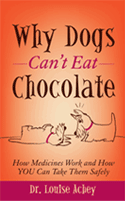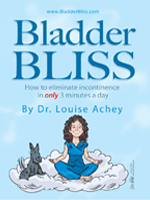How To Deal With Bitter Pills
Q: Since I started a new medicine, my food doesn’t taste right. Is there anything I can do about this?
Our ability to taste foods and drinks enhances our enjoyment of socializing with special foods and savoring favorite flavors, but as we age we start to lose our ability to taste sweet and salt, and that can affect our food choices.
The worse a medicine tasted the more potent they were believed to be, leading to the phrase, “a bitter pill to swallow”. Medicines also have the power to change how our food tastes and smells, with 250 medicines documented to affect how we taste or smell.
There’s also a difference between the taste of something on your tongue, and its characteristic flavor. If you’ve ever had a bad cold or sinus infection which suppressed your sense of smell, you may have noticed that your food and drinks didn’t have their own particular flavor.
Taste is a complex process. We have several different types of cells and nerves inside our mouth and nose receiving signals from foods and drinks that come in contact with them. These signals are then carried to the brain where they are interpreted and identified. This is how we can tell the difference between the heavenly smell of a fresh baked cinnamon roll and the tang of spoiled milk.
Think about your favorite flavor of ice cream. What makes it taste so good? You have three types of receptors working together to create that taste sensation: your taste buds, some other taste receptors found in your mouth, and smell receptors in your nostrils. Each of these handles a different type of sensation.
Found on your tongue, soft palate, and the back of your mouth where you swallow, your taste buds have 4 different types of taste receptor cells, each picking up only one type of taste: sweet, salty, sour or bitter. The other taste receptors in your mouth are not only on your tongue but all along the lining of your mouth, and these taste receptors can sense stinging, burning, cooling and sharpness. People who wear dentures report that they don’t taste food as well since they started wearing them. This is because the taste receptors on the roof of their mouth are now covered up.
What causes taste disturbance? Medications are a common culprit but they aren’t the only one. Medical conditions such as cancer, or poor oral health such as severe tooth decay, an abscessed tooth, and gingivitis can affect the ability to taste. Either radiation or chemotherapy for cancer can also change taste perception.
Medicines can alter taste in several ways, either by tasting bad or changing how you taste. Liquids come in contact with more of your taste buds than a tablet, creating a more intense taste experience. To give our new doctors-in-training an appreciation of why kids have to be coaxed into taking their medicine, my clinic hosts a Taste Test of several liquid medicines every spring. It’s appalling how awful some of them taste.
Another way medicine can affect your ability to taste is by causing your mouth to be dry. Taste and smell receptor cells need moisture to function; taste buds and other taste receptor cells are continually bathed in saliva, and mucus protects the scent receptors in your nose.
Antibiotics and cancer chemotherapy drugs top the list of drugs that can give you a “bad taste in your mouth”. Unfortunately, the drugs most commonly used to treat breast cancer are some of the worst offenders at changing taste and flavor. These drugs diffuse throughout your body, even into your saliva and mucus. That metallic taste in your mouth? When you notice a “funny” (metallic, bitter or sour) taste in your mouth, it’s because you are actually tasting the drug itself as it contacts your taste buds!
Chemotherapy agents also affect taste by destroying your taste and smell receptor cells. Chemotherapy and radiation treat cancer by attacking any rapidly dividing cells. Taste receptor cells are renewed every 10 days, and smell receptor cells are regenerated every 30 days, making them very susceptible to damage from both chemotherapy and radiation treatment.
What can you do about your funny taste in your mouth? Sugarless gum with xylitol, or sugarless lozenges can help dry mouth symptoms and chase away an unpleasant taste. Sips of water or ice chips can also help mask weird tastes. If this doesn’t help, speak up and let your doctor know about this so that you can discuss other medicine options that you could take instead.



